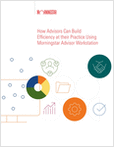The U.S. District Court for the middle district of Pennsylvania denied Principal Life Insurance Co.’s bid to have policies declared null and void because they were allegedly part of a stranger-originated life insurance (STOLI) scheme.
Principal Life Insurance Co. vs. Mark DeRose and Matthew DeRose , trustees, and First Priority Bank rejected in part a ruling by a magistrate judge that an insurance interest existed in the case, making way for a ruling that allows for the policies.
“This court is acutely aware of the law’s general distaste for wager policies and recognizes the importance of the insurable interest doctrine,” U.S. District Judge Christopher Conner wrote in his decision. “The court notes that this decision does not vitiate the statutory requirement that an insurable interest exist at the time of inception or that the insured must apply for the policy.”
Judge Conner added that “there may or may not be a fundamental difference between persons with an insurable interest using life insurance policies as a financial planning mechanism by immediately assigning the policies to third parties and direct wagering by third parties with no insurable interest. It is the job of the Pennsylvania General Assembly, however, and not this court to weigh the competing policy considerations. Neither this court nor the Pennsylvania Supreme Court can engraft an intent or good-faith requirement onto statute 512 based on its own policy preferences.”
In December 2008, Principal filed an instant declaratory judgment action against trustees of the JoAnn DeRose Family Trust, alleging that the trustees purchased the policies as part of a STOLI scheme and that the trustees concealed their intended use of non-recourse financing on the application for the policies.
Principal sought a declaration that the policies are void or voidable on grounds that the policies lacked an insurable interest at inception, and/or (contained material misrepresentations.
The case notes that approximately one month before Ms. DeRose applied for life insurance from Principal, Ms. DeRose submitted an application for non-recourse premium.
Principal alleged that the trustees purchased the policies as part of a STOLI scheme and that the Trustees concealed their intended use of non-recourse financing on the application for the policies.
The Principal’s policy explicitly prohibited any form of STOLI.








 October 11, 2011 at 09:58 AM
October 11, 2011 at 09:58 AM










